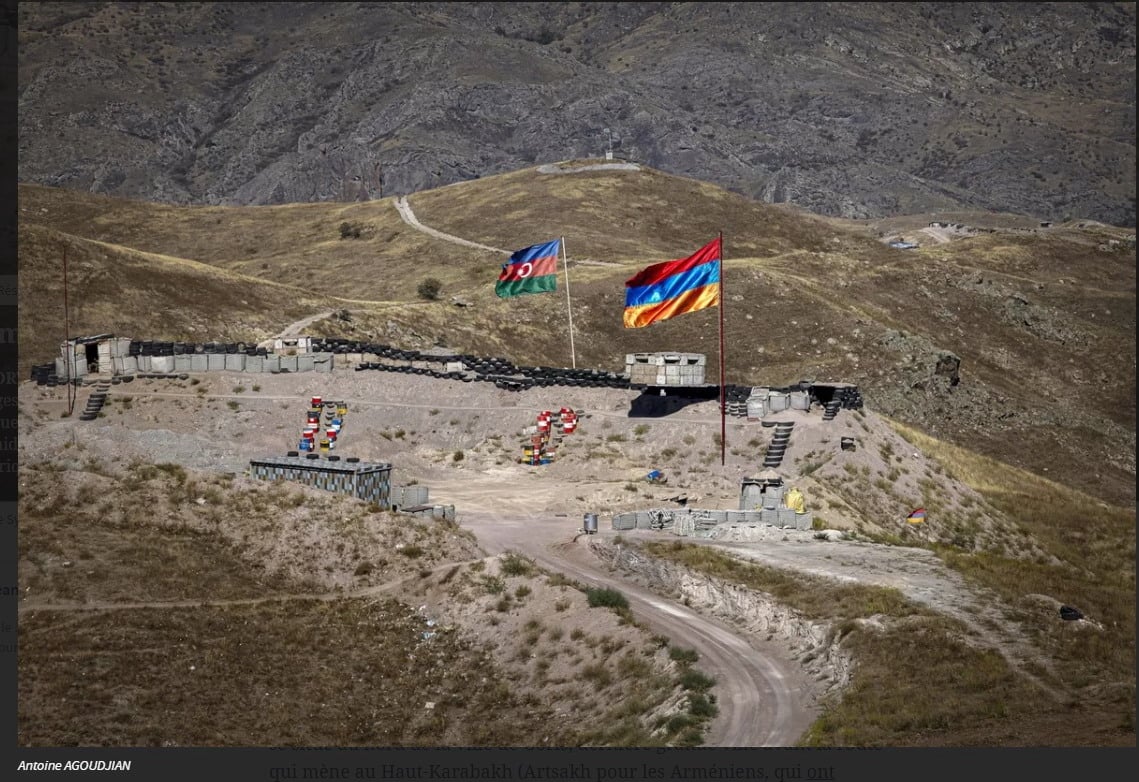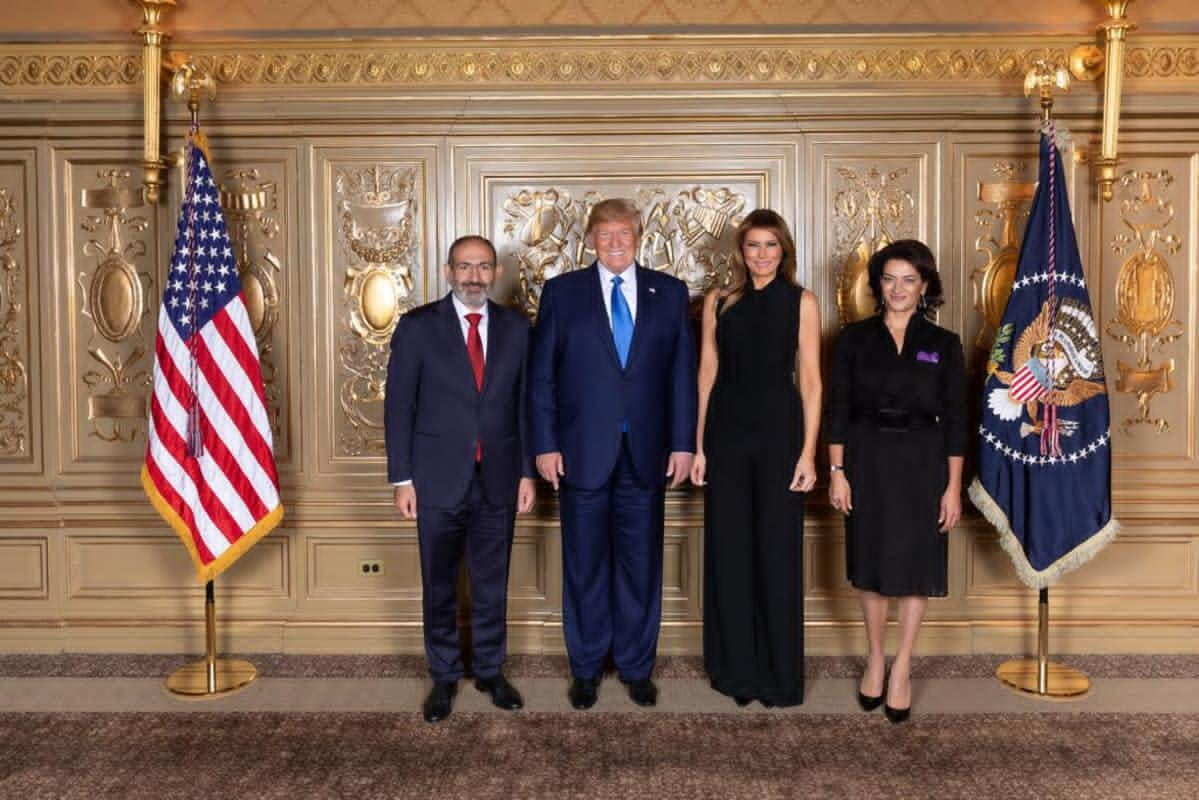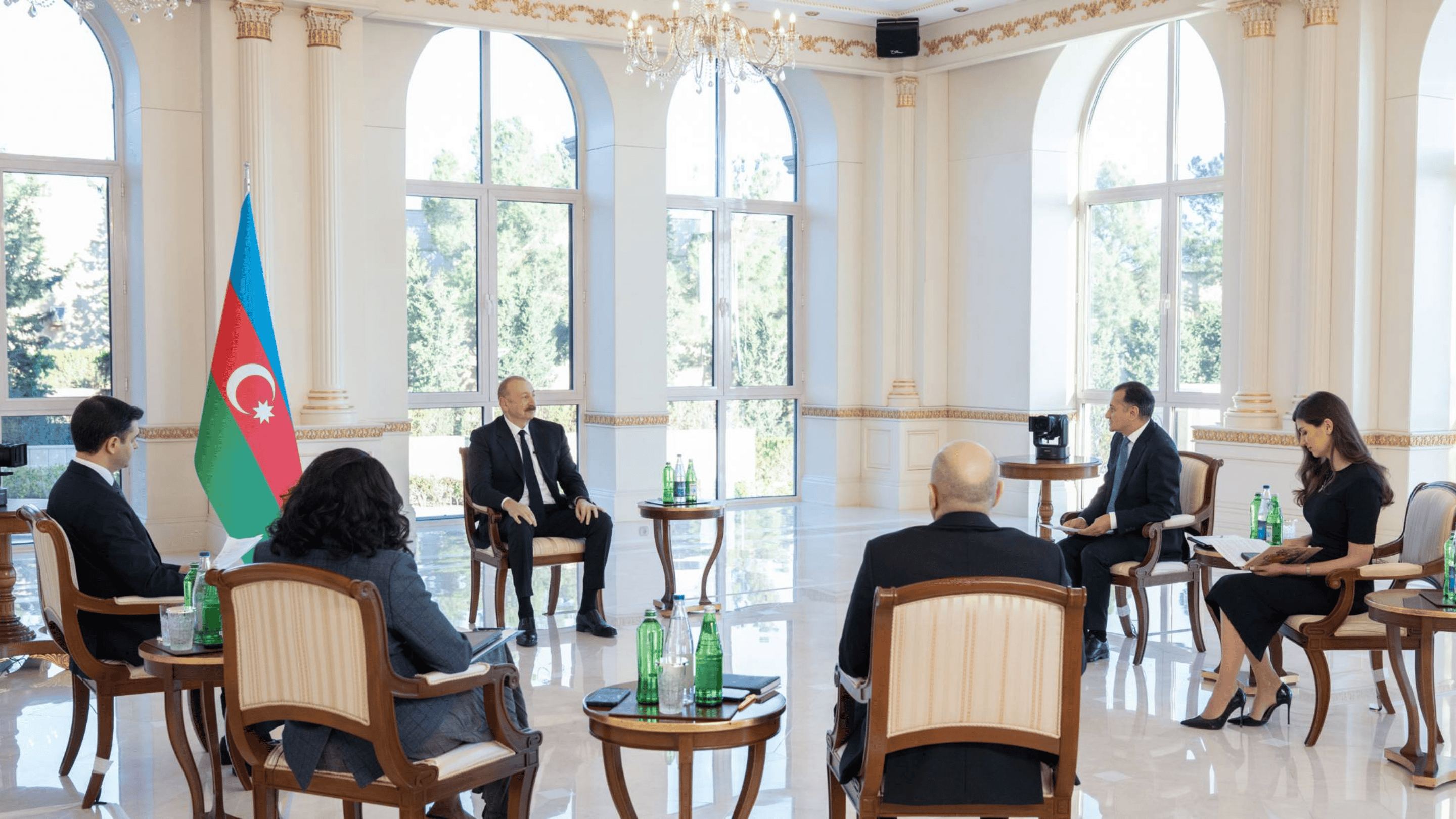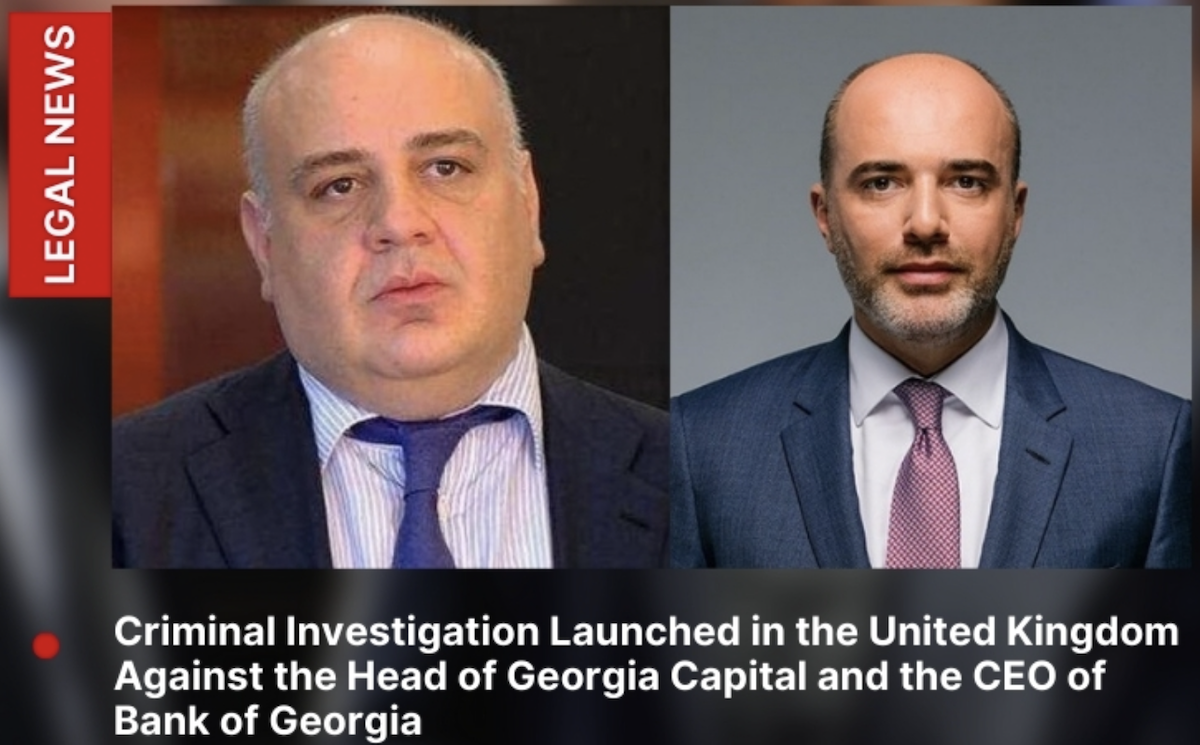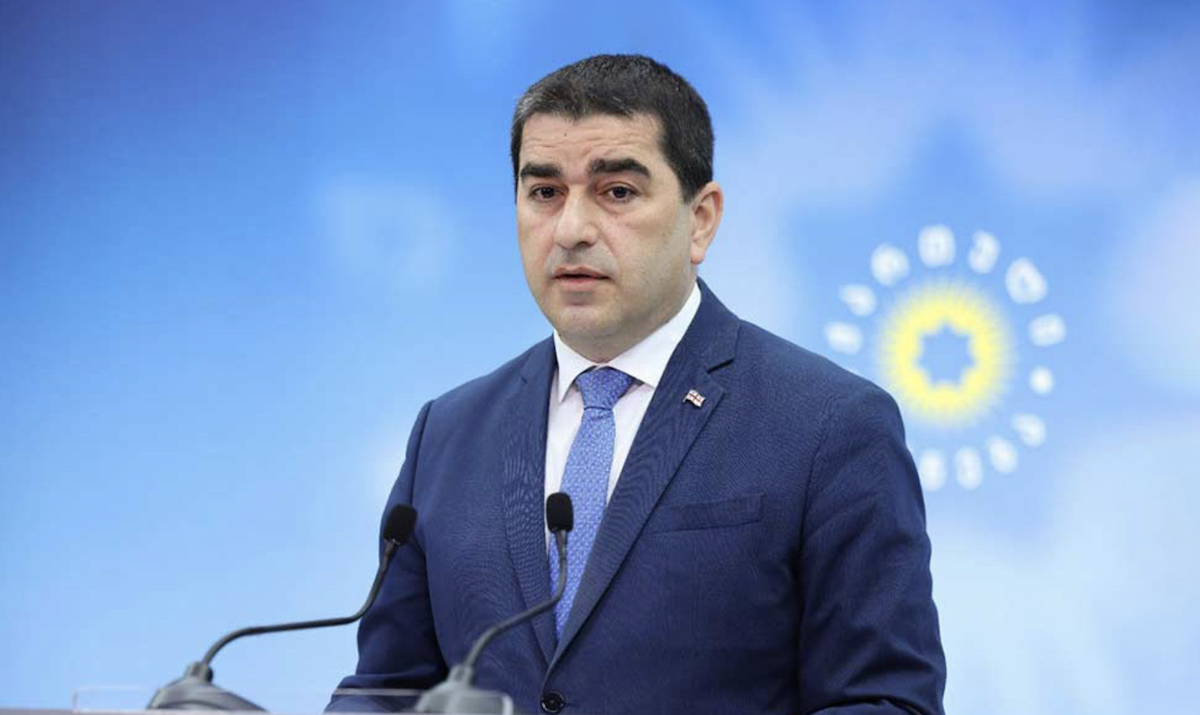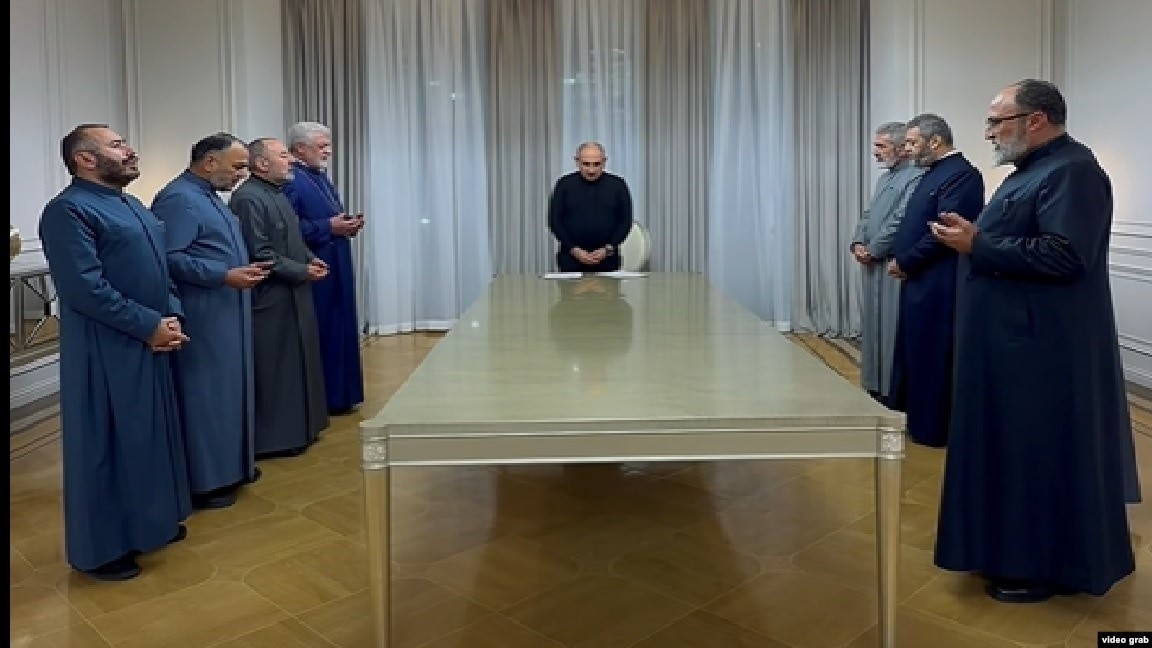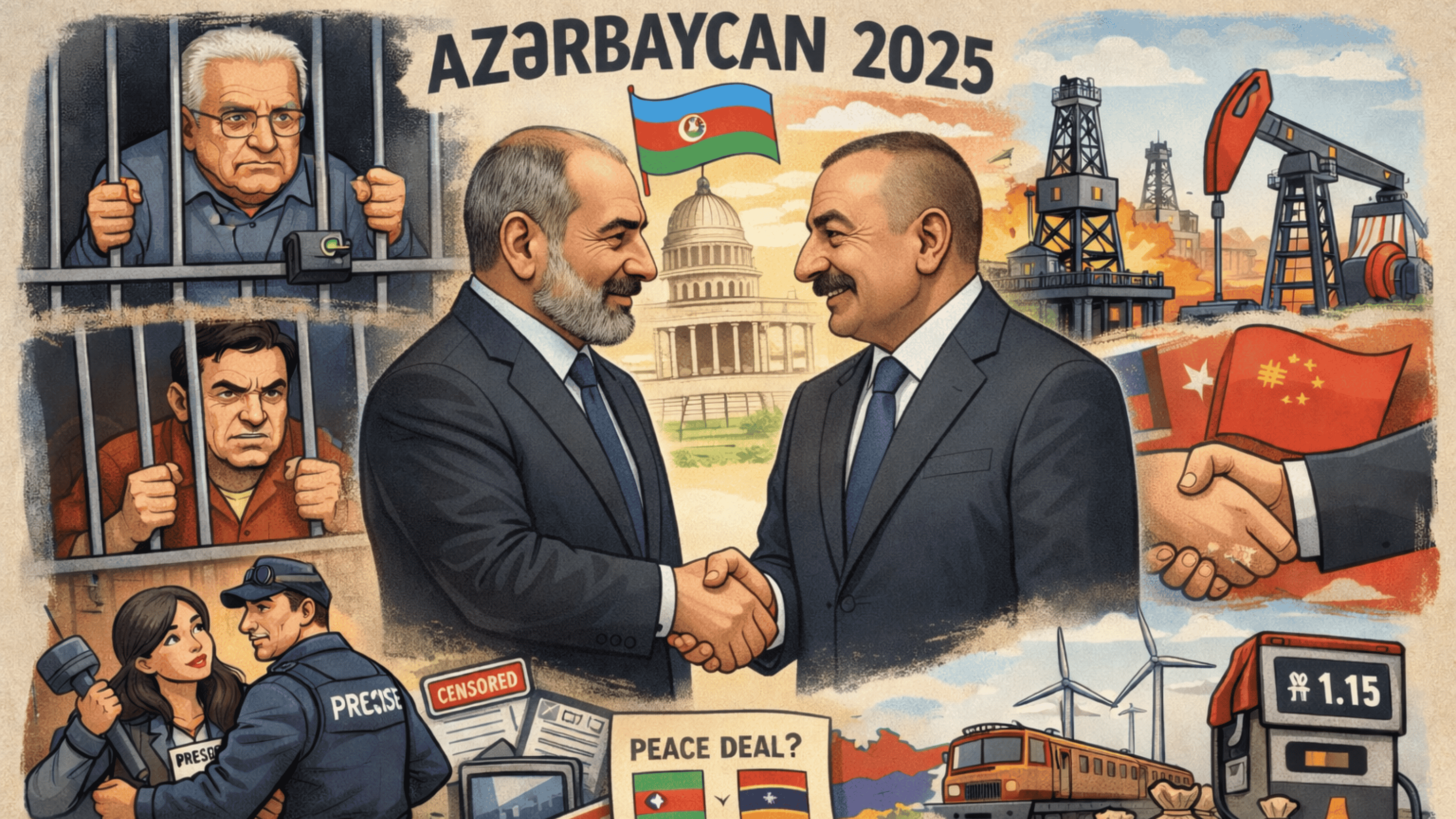Peace talks over coffee: Pashinyan and Aliyev meet in Tirana
Pashinyan-Aliyev talks in Tirana
On 16 May, the leaders of Armenia and Azerbaijan met in the Albanian capital, Tirana, on the sidelines of the sixth European Political Community Summit. According to official sources in Yerevan, the two sides discussed the current situation and underlined the importance of continuing efforts toward signing a peace agreement.
No further details of the meeting have been disclosed. Published photographs and video footage show Prime Minister Nikol Pashinyan and President Ilham Aliyev speaking informally across a coffee table.
In March 2025, both countries announced that they had reached agreement on all provisions of a peace treaty. However, immediately afterward, Baku presented new preconditions for signing the document.
Azerbaijan is demanding constitutional amendments in Armenia and the formal dissolution of the OSCE Minsk Group.
On the eve of the Tirana meeting, Prime Minister Nikol Pashinyan gave an interview to an Azerbaijani journalist, in which he reiterated that Armenia’s constitution contains no territorial claims against Azerbaijan or any other country.
“As for the dissolution of the Minsk Group, which had been mediating the Karabakh conflict, this is a proposal the Armenian side broadly accepts,” Pashinyan said. “But we want to ensure that Azerbaijan’s intention is not to declare the conflict closed on its own territory only to reignite it inside Armenia. We have a solution. We are proposing that the peace agreement be signed simultaneously with a joint appeal to the OSCE to formally dissolve the Minsk Group.”
Meanwhile, Armenian analysts continue to debate what is truly holding up the treaty’s signing. According to political analyst Robert Gevondyan, certain actors have a vested interest in preventing peace from being reached.
“First and foremost, this does not benefit Russia,” he said. “Open borders between Armenia and Azerbaijan and the launch of transit trade would deprive Moscow of its status as a key corridor for Armenia. Russia would also lose a tool of influence in the South Caucasus—namely, the conflict itself.”
- ‘If Trump demands it, Baku will sign peace deal with Yerevan’- opinion of US-based analyst
- Baku purchased over $2 billion worth of weapons in 2024: Armenian expert explains why
- ‘There will be no war, there will be peace’ and other statements by Pashinyan in Armenia’s parliament
“We have no territorial claims”: Pashinyan speaks to Azerbaijani journalist
In an interview with an Azerbaijani journalist, Armenian Prime Minister Nikol Pashinyan reiterated that Armenia harbours no territorial claims against its neighbours—a point confirmed by the country’s Constitutional Court, he noted.
Pashinyan also stressed that Baku’s main concerns are already addressed within the draft peace agreement itself. Specifically, the document includes the following provisions:
- Armenia and Azerbaijan mutually recognise each other’s territorial integrity and sovereignty, based on the Alma-Ata Declaration, acknowledging that the administrative borders of the former Soviet republics have become international boundaries;
- Both countries declare that they have no territorial claims against one another and commit not to raise such issues in the future;
- Neither party may invoke its domestic legislation to justify non-compliance with the terms of the peace treaty.
“If these concerns are genuine,” Pashinyan said, “then the quickest way to resolve them is to sign the peace agreement.”
Responding to a question regarding the OSCE Minsk Group, the Prime Minister expressed readiness to issue a joint statement on its dissolution on the day the peace agreement is signed.
“Let us sign the peace agreement and, at the same hour, on the same day, and in the same place, submit a joint declaration to the OSCE on disbanding the Minsk Group structures. Such a step would be a powerful gesture toward building trust and stability in the region,” he said.
Fresh accusation from Baku in response to Pashinyan’s remarks
Baku has already responded to Prime Minister Nikol Pashinyan’s recent statements. Azerbaijani Foreign Ministry spokesperson Aykhan Hajizade reiterated his country’s longstanding position without amendment:
“Amending the Constitution of Armenia—which poses a direct threat to Azerbaijan’s national security—is the primary condition for peace and a legitimate right of Azerbaijan to demand.”
Hajizade went further, accusing Pashinyan of attempting to “mislead” the international community.
“Even the coat of arms referenced in Article 21 of Armenia’s Constitution reflects the Republic of Armenia’s territorial claims against its neighbours,” he stated.
Hajizade was referring to the depiction of Mount Ararat on Armenia’s coat of arms—an iconic mountain located within the borders of modern-day Turkey.
EU says Armenia and Azerbaijan are close to reaching agreement
“Azerbaijan and Armenia are very close to reaching an agreement. I believe it is in everyone’s interest to sign this peace treaty. One less conflict in the world would be a good outcome,” said EU High Representative for Foreign Affairs and Security Policy, Kaja Kallas, speaking in Tirana.
The European Union has expressed hope that Armenia and Azerbaijan will sign the agreed text of the peace treaty as soon as possible. European Commission President Ursula von der Leyen issued a statement citing her recent meetings with the Armenian Prime Minister and the Azerbaijani President.
“The EU is ready to invest in regional connectivity – and bring the whole region closer together and closer to our Union,” she wrote on her X microblog.
Commentary
Political analyst Robert Ghevondyan believes it is evident that Azerbaijan is not genuinely pursuing peace. He also points to interference from other countries, particularly Russia, as a major obstacle to the signing of the agreement.
“There are numerous and well-founded assumptions that Russia is actively working to obstruct the signing of the agreement currently on the negotiating table,” Gevondyan said. “After all, there could be an alternative version of the treaty that Moscow finds more acceptable.”
According to Ghevondyan, the current draft “leaves Russia on the sidelines.” He also suggests that the early withdrawal of Russian peacekeepers from Karabakh may be linked to the ongoing peace process:
“It is possible that Azerbaijan promised Russia it would not sign a treaty with Armenia—or at least not until Armenia agrees to, for example, a Russian presence in the so-called Zangezur corridor.”
The corridor in question refers to a transport route intended to connect mainland Azerbaijan with its exclave, Nakhchivan. Armenia has expressed readiness to allow such a route, but strongly opposes the use of the term “corridor,” which it sees as implying a loss of sovereignty. Russia, for its part, reportedly seeks to control the road, a demand the Armenian government considers unacceptable.
Ghevondyan notes a growing alignment between Moscow and Baku on certain strategic issues, which he attributes to shifting geopolitical dynamics.
He argues that Azerbaijan’s position in the region was strengthened by the 2020 war in Karabakh and the mass exodus of ethnic Armenians from Nagorno-Karabakh in 2023. These developments have made Baku a key partner not only for Russia, but also for major global actors—from the West to China.
He also points to increased Russia-Azerbaijan cooperation as a consequence of Moscow’s deteriorating relations with the West following its invasion of Ukraine and the ensuing sanctions.
“Baku exports energy resources under the Azerbaijani label,” Gevondyan said, “but in reality, they are Russian. The ultimate recipient of the revenues is Russia.”
Follow us – Twitter | Facebook | Instagram
Pashinyan-Aliyev talks in Tirana










